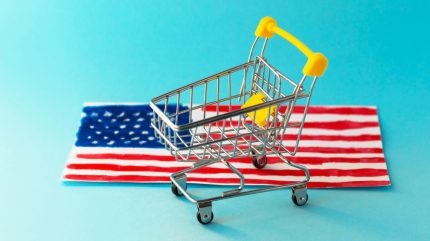
US retailers are accelerating their holiday import shipments to the country in a bid to mitigate potential disruptions caused by a looming port strike and ongoing supply chain challenges, Reuters reported.
A surge in container imports and freight rates during July indicates an earlier-than-usual peak season for the ocean shipping industry.
This trend is particularly pronounced among US retailers, who account for nearly half of global container trade.
According to Reuters, industry experts attribute this rush to a combination of factors.
The late Thanksgiving date this year compresses the holiday shopping season while the threat of a port workers’ strike adds further uncertainty.
Shipping giant Maersk has warned of severe consequences, including weeks-long delays and backlogs if a strike occurs.
Consequently, retailers are pulling forward holiday promotions and stocking up inventory earlier than usual.
“Retailers don’t want to be caught back-footed,” said Jonathan Gold, the National Retail Federation’s vice-president for supply chain and customs policy.
Despite concerns over inflation and consumer spending, the import surge is primarily driven by precautionary measures.
Shipping companies are also feeling the pressure, with some reporting record volumes and increased freight rates.
However, according to the news agency, experts anticipate a decline in rates as the peak season subsides.
Beyond the immediate supply chain challenges, the US retail industry is also grappling with the potential impact of new tariffs imposed by the Biden administration.
While the full extent of these tariffs on consumer goods remains to be seen, they add another layer of complexity for retailers already navigating a turbulent supply chain landscape.
While retailers hope to avoid stockouts and meet consumer demand, their ultimate success will depend on a smooth-running supply chain and reliable consumer spending patterns.




